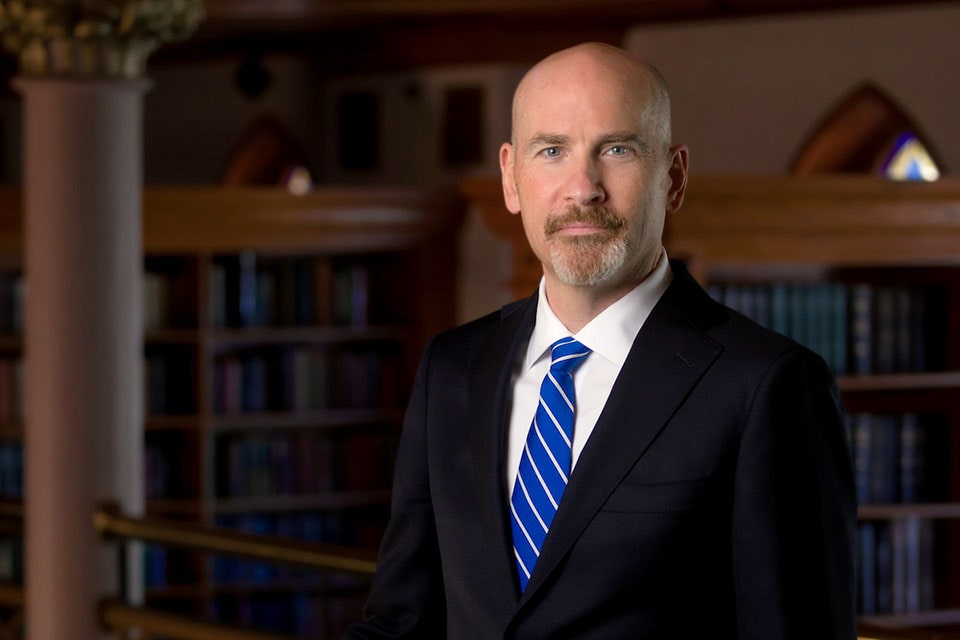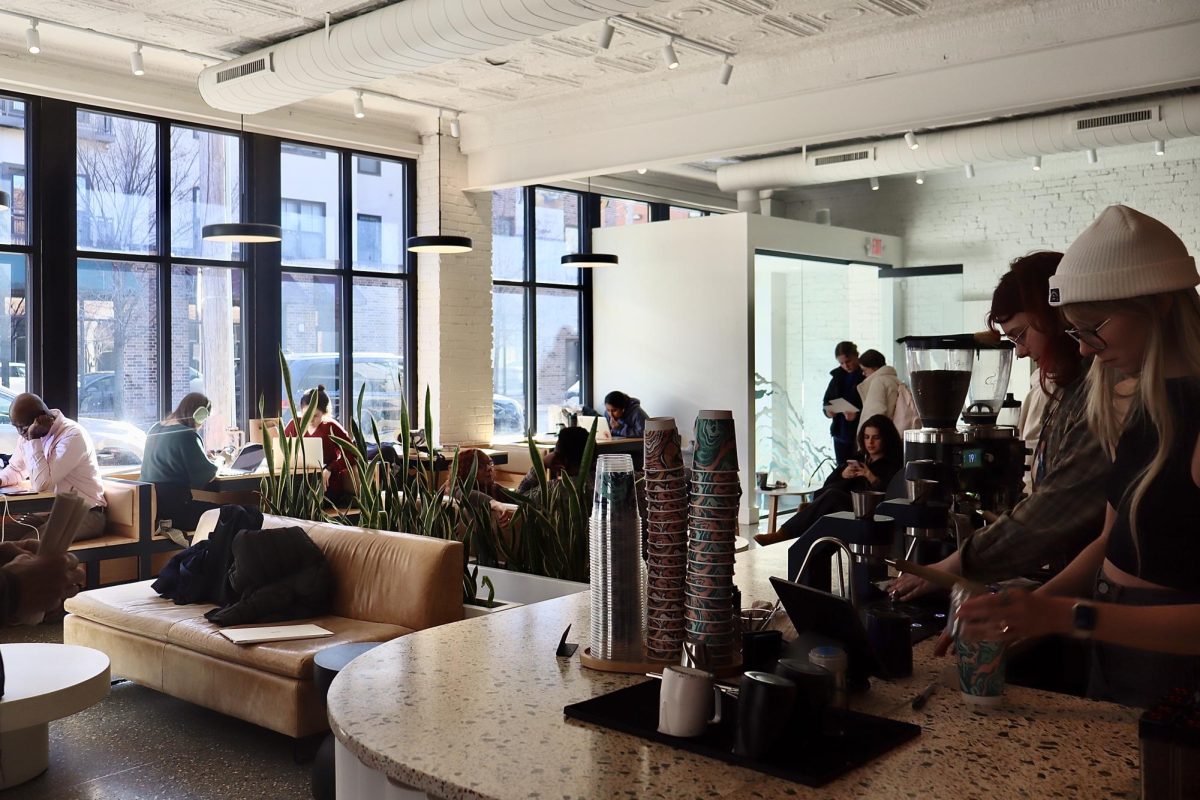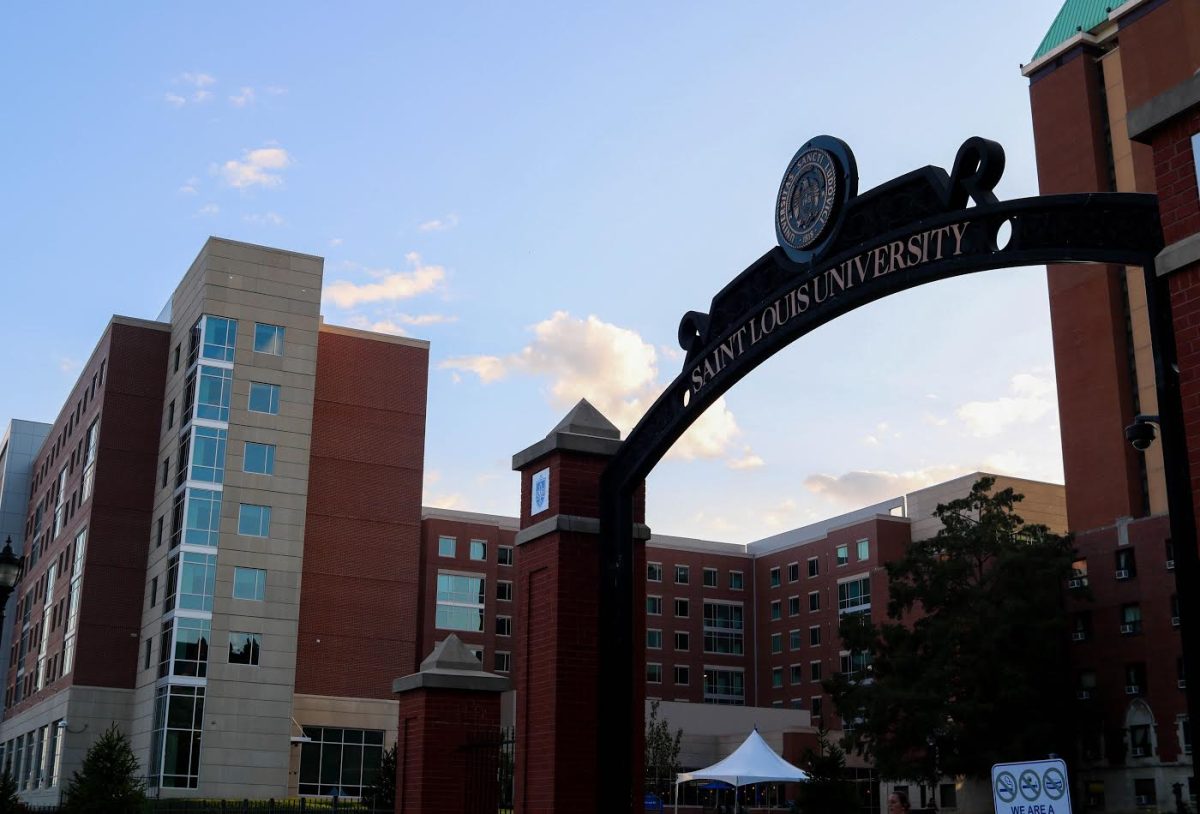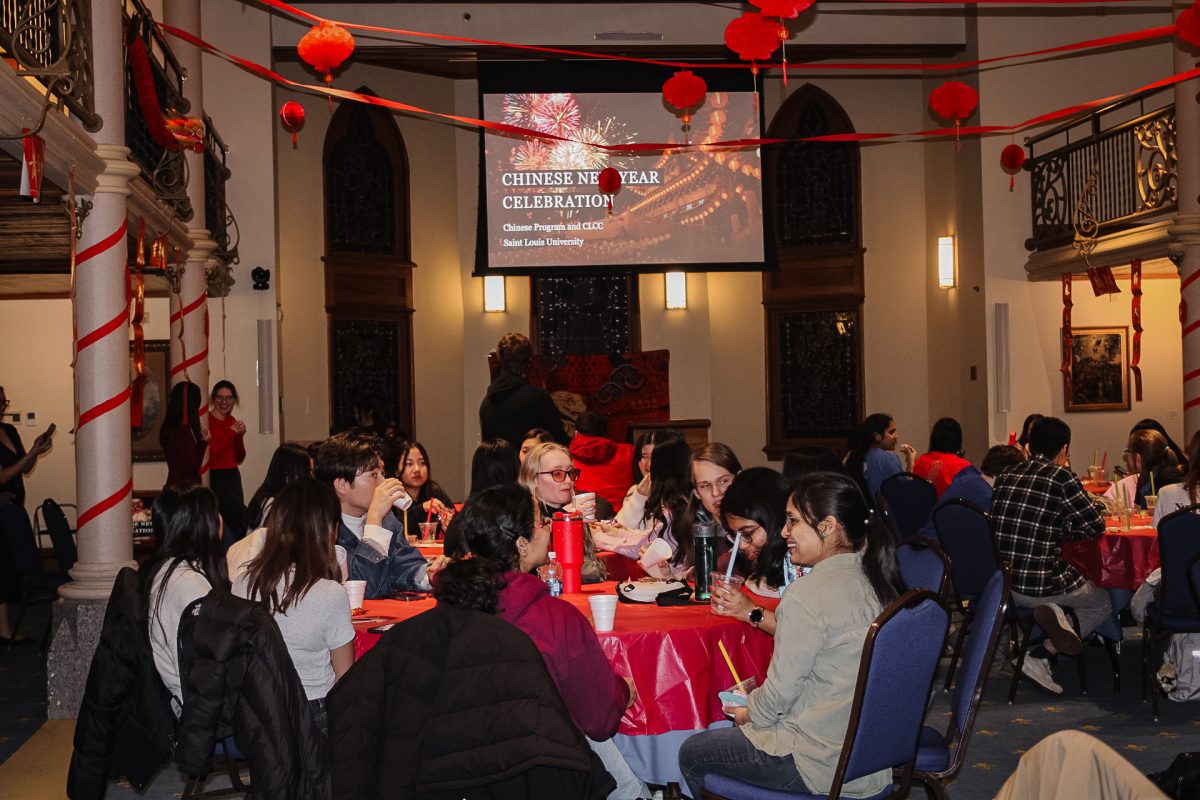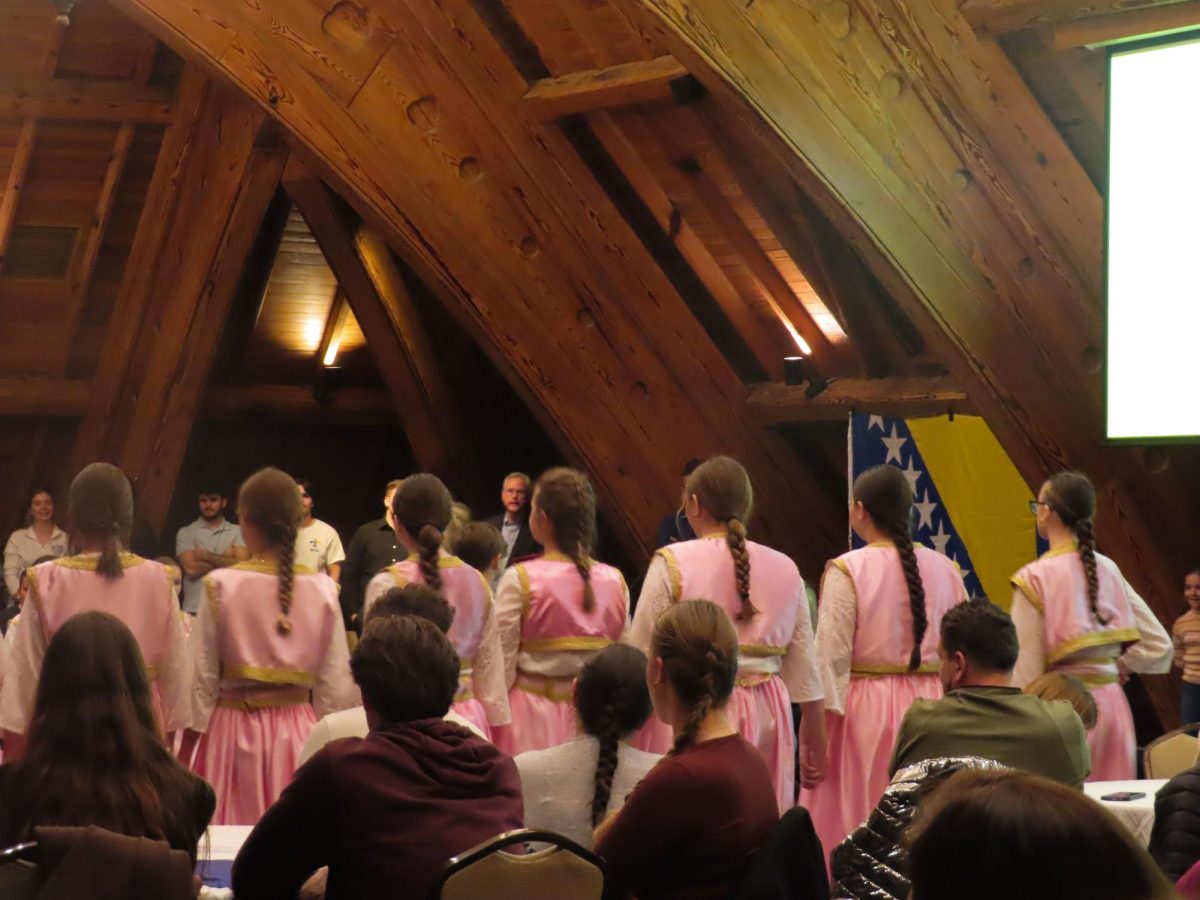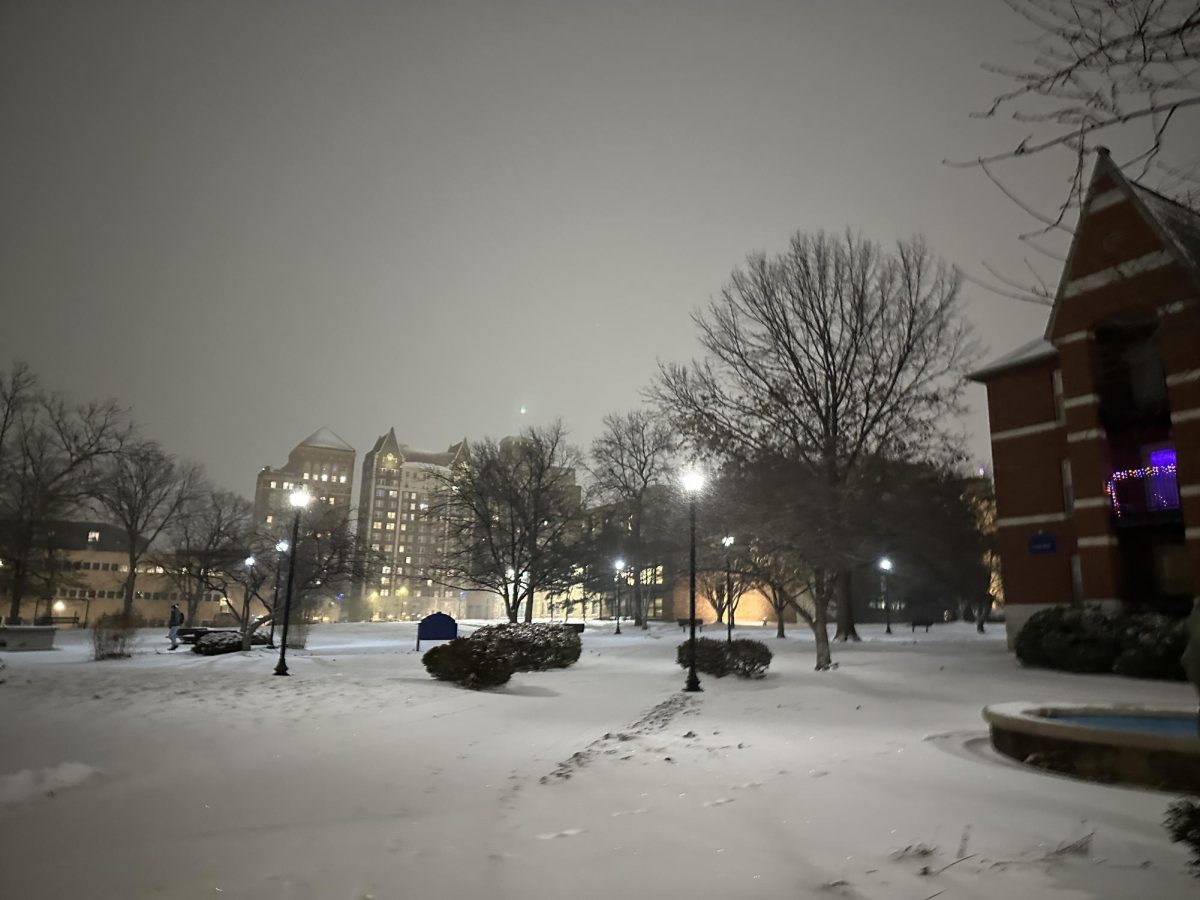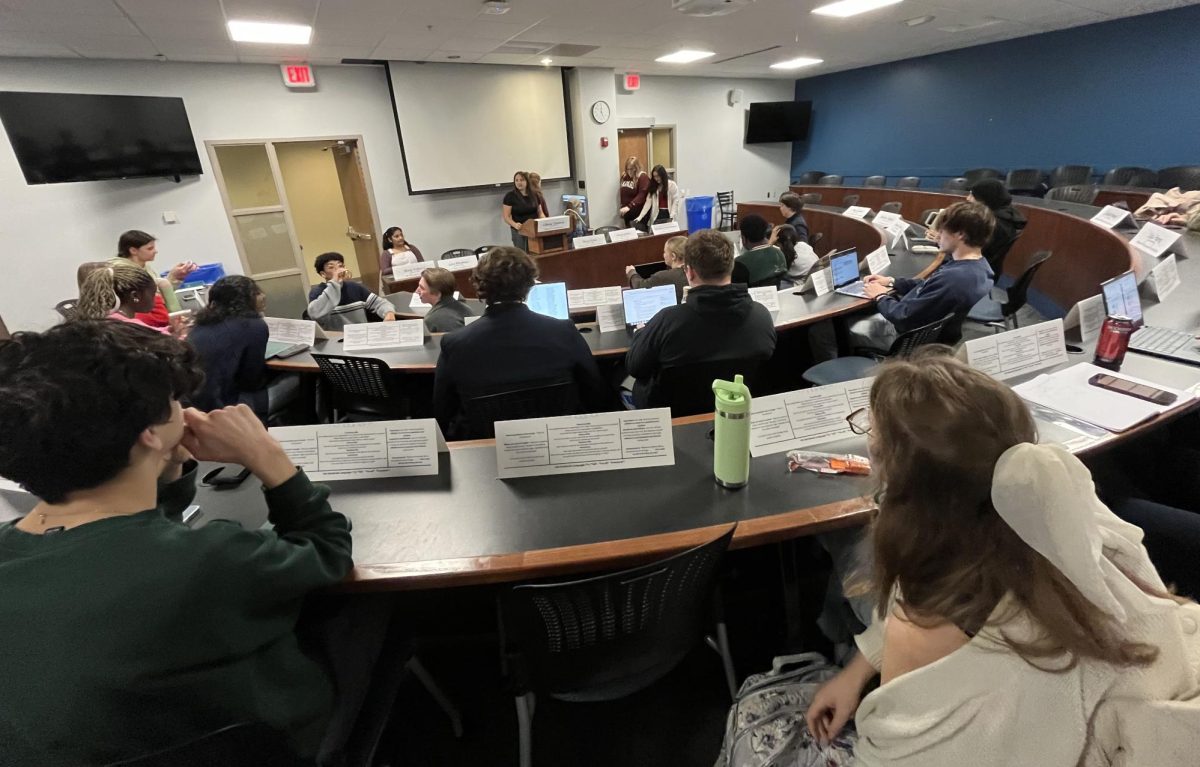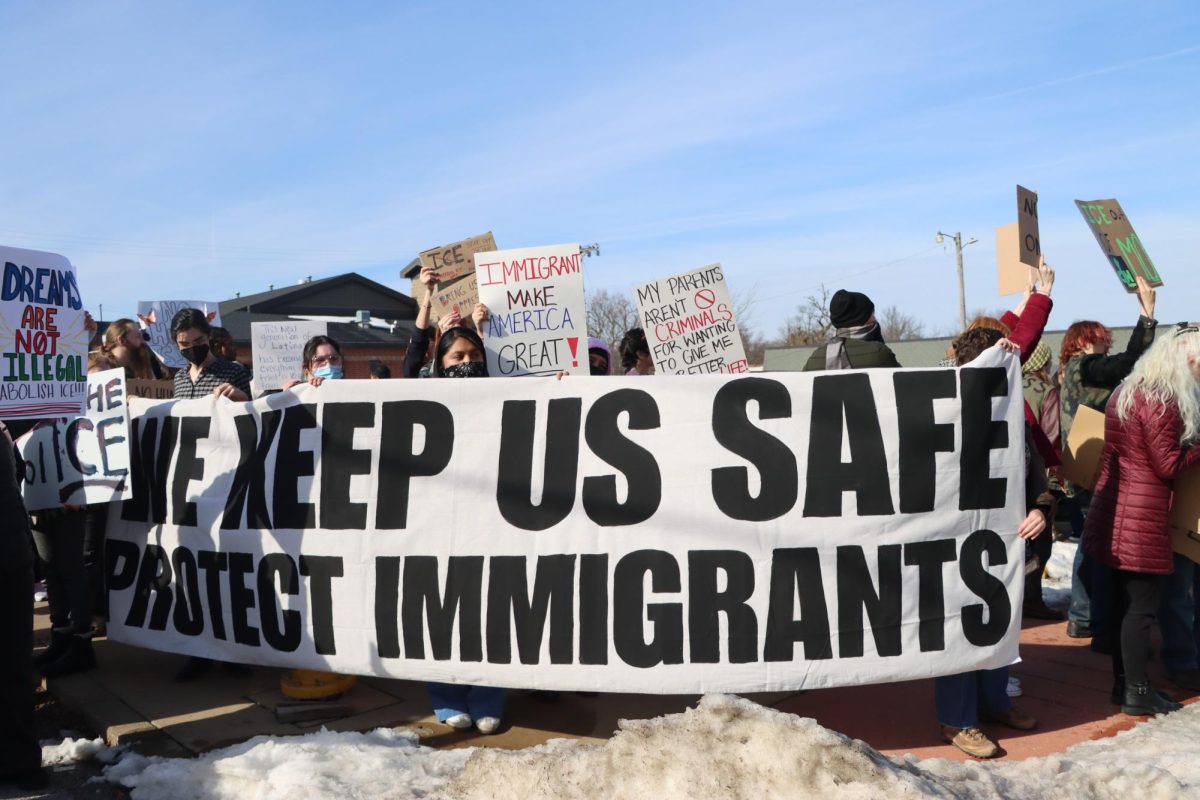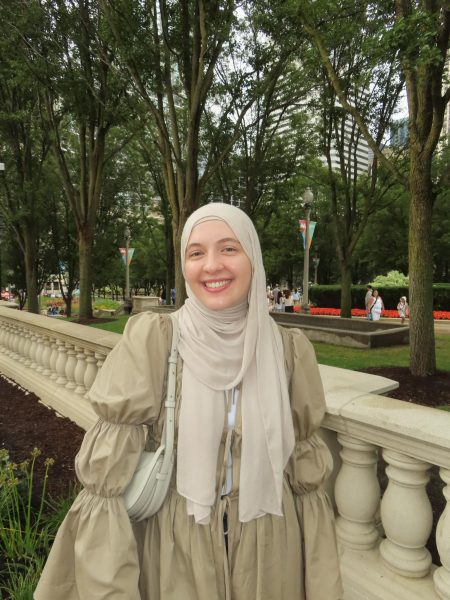Muslim communities have been bustling with activity throughout the month of Ramadan. On and off Saint Louis University’s campus, some people volunteered at mosques, cooking for worshippers or neatly setting tables for their fast-breaking meals. Others hosted communal events, welcoming Muslims and non-Muslims to share in their celebrations. Many were deep in reflection, trying to improve and grow in faith.
Ramadan, which will end around March 30 this year, is the 9th month in the lunar calendar in Islam and is considered the holiest month of the year for Muslims. Throughout this month, 2 billion Muslims around the world fast from sunrise to sunset, engage in spiritual reflection and connect with their communities to achieve the ultimate goal of Ramadan: getting closer to and becoming more conscious of Allah (God). Muslim and non-Muslim SLU students, faculty and surrounding communities were among those who participated in the festivities.
During Ramadan, multiple mosques in the St. Louis area prepare daily iftar – the meal to break the fast – open to the community, including the Masjid Bilal Islamic Center. Founded in 1965 as one of the first established mosques in St. Louis. Masjid Bilal sits adjacent to SLU’s campus, only a few feet from DeMattias Hall. Students, especially SLU’s Muslim Student Association (MSA) members, helped prepare iftar at Masjid Bilal alongside community volunteers.
From chopping fragrant herbs to filling and sealing homemade samosas, the volunteers pulled off daily Ramadan dinners for approximately 150-200 people a night, everyone playing a key part.
Ansam Ayesh, the MSA’s secretary and a senior studying accounting at SLU, said volunteering at Masjid Bilal reminded her of how close people across the St. Louis Muslim community are to one another.
“I really enjoy it… Once you see the community and you see how everybody’s there, willing to help, it really just de-stresses you, in a sense, because there’s so many helping hands during Ramadan, like there’s not just one singular person doing it, it’s everybody,” Ayesh said.
The daily cooking is led by dedicated community members, including two women who have each spent around 20 years feeding their community every Ramadan. One of them described the volunteers as a family.
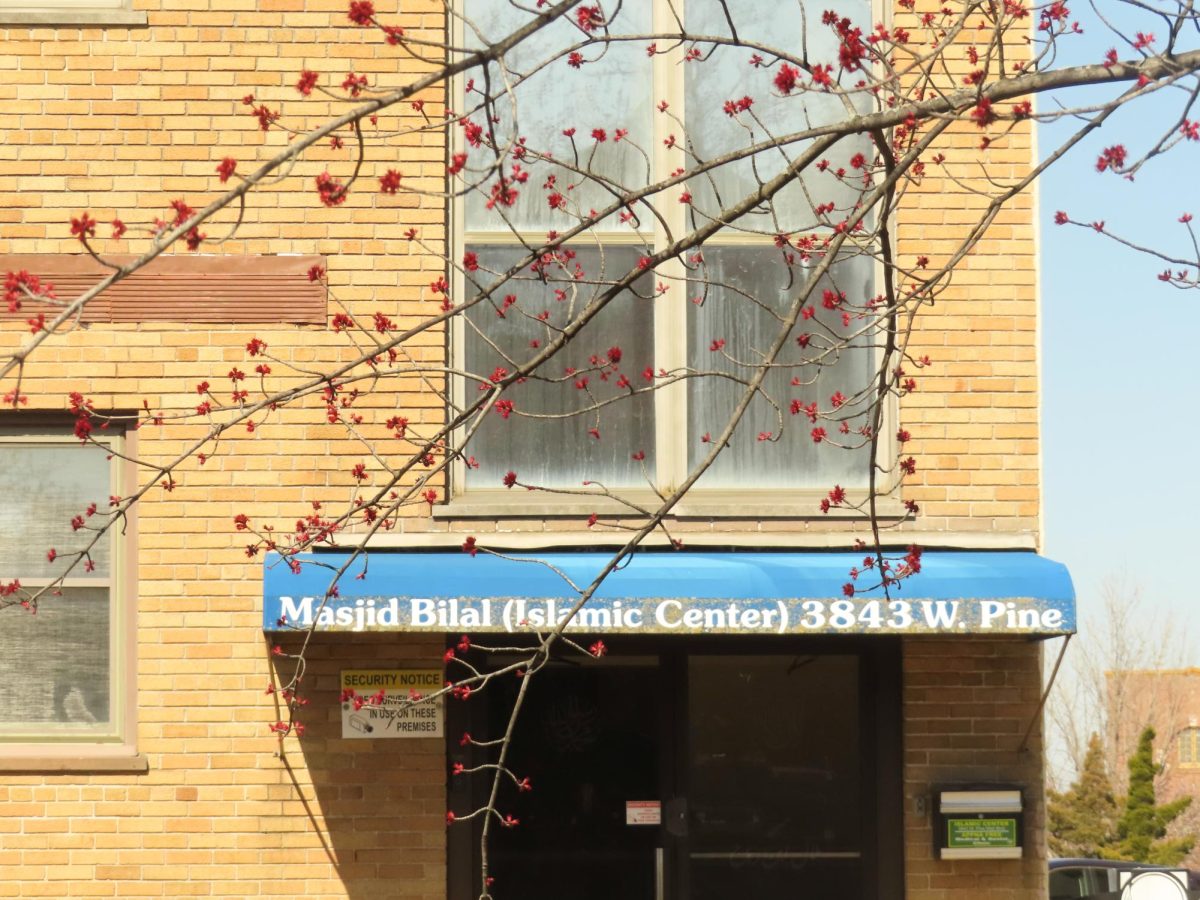
Mamoun Benmamoun, an associate professor of international business at SLU’s Richard A. Chaifetz School of Business, regularly leads prayers and attends iftars at Masjid Bilal. As a Muslim professor, Benmamoun said he is fortunate to witness the strong bond between SLU and neighboring Muslim communities.
“SLU has proven to be a supportive neighbor, offering generosity and support in numerous ways, such as supplying much-needed parking for mosque events,” Benmamoun said. “Beyond logistical assistance, SLU students have contributed to uplifting the wider community. They have volunteered at Masjid Bilal’s free clinic, tutored minority children, and have been actively involved in the House of Goods (Baitulmal), a nonprofit initiative that provides free essential items to families in need, refugees, and the homeless.”
The MSA at SLU is also especially active during Ramadan, hosting multiple events that invite Muslims and non-Muslims to experience the blessed month. Larger events like a collab iftar with the Middle Eastern Student Association, Pakistani Student Association and Turkish-American Student Association and the annual MSA Fastathon attracted hundreds of attendees for evenings of community building and a free dinner.
During the Fastathon on March 25, around 300 SLU community members broke their fasts and reflected on the meaning of Islam together, said Fatema Rehmani, the MSA sister’s president and a senior studying public health at SLU.
“Ramadan is always my favorite time of year. At Fastathon, when we have people who are fasting as Muslims, and individuals trying it for the first time, collectively breaking our fast and sharing a meal – it’s a really beautiful, unifying moment,” Rehmani said. “It reminds us of the importance of empathy for those in need, the importance of gratitude, generosity, humility and compassion.”
Alanna-Paige Pinkney, a freshman pursuing a bachelor’s in entrepreneurship and a minor in service leadership, said she came to the Fastathon event to learn more about Islam from Muslims.
“Having MSA events like this, or in general, where people can just congregate like this and feel very proud of their culture, and then to be able to share it with others…is just very powerful,” Pinkney said. “[When it feels] like the world is on fire all the time, it’s really nice to just be in community.”
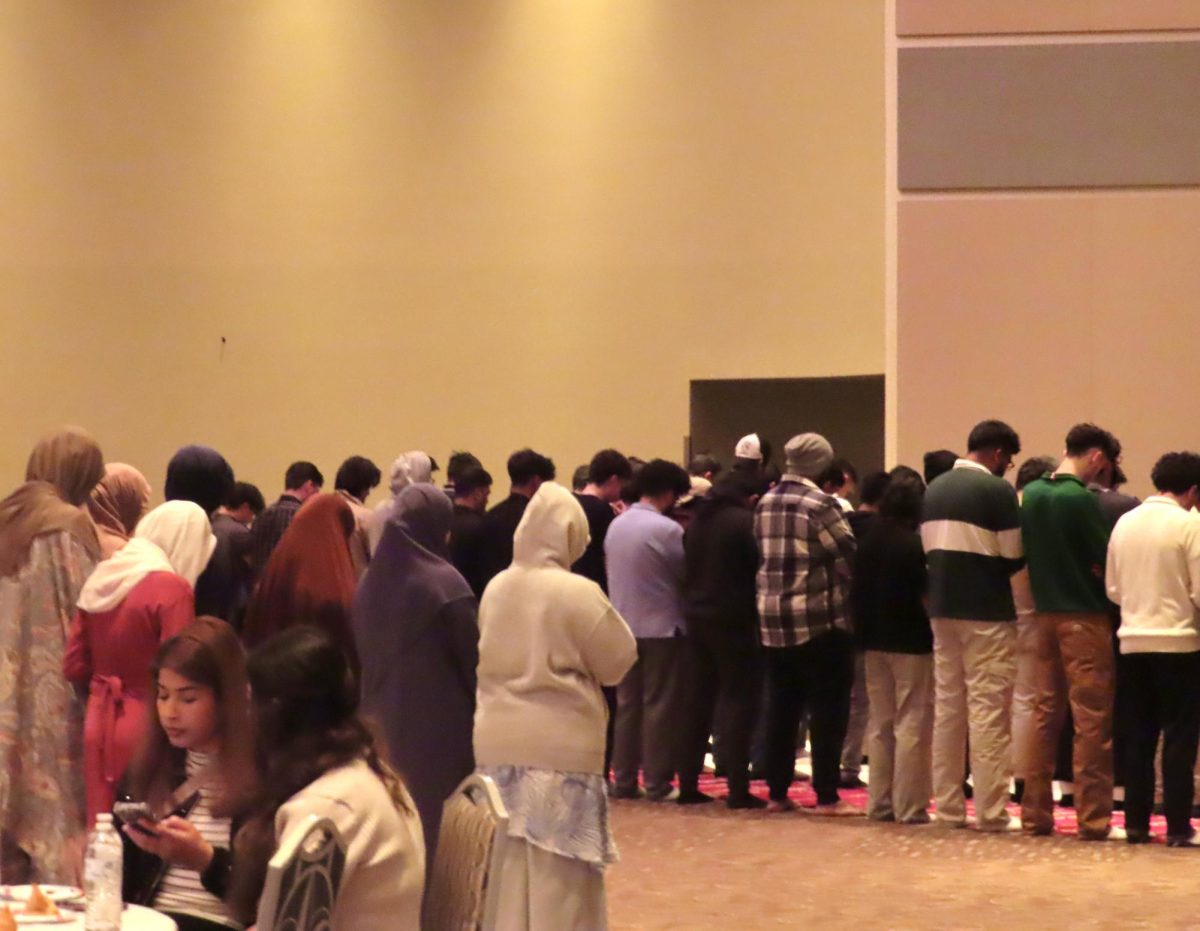
Beyond larger events, MSA E-Board, members and faculty made efforts to include curious members of the SLU community in their Ramadan traditions. On one occasion, Rehmani and MSA vice president and biomedical engineering junior Nawal Said hosted several SLU professors at Masjid Bilal.
This visit on March 19 was part of Patrick Cousins’s annual efforts to invite his colleagues to the mosque. As the director of pastoral formation in SLU’s division of mission and identity and the MSA’s faculty advisor, Cousins said many SLU community members are unaware of the mosque’s proximity and how Ramadan is a chance for them to experience it.
Cousins said SLU is fortunate to have a mosque right next to campus, something most universities do not have. As a believer in fostering friendship and dialogue between different religions, Cousins sees Masjid Bilal and the MSA as resources to do that.
“For me, the real dialogue happens when you’re sitting down with somebody at the table and just hearing what matters to them,” Cousins said.
The group with Rehmani and Said shared laughs and stories over iftar as the two spoke of their Ramadan experiences and favorite traditions from childhood to college. The professors also asked questions that ranged from basics about Ramadan and fasting to what Muslims believe and the ways they worship.
Against the backdrop of the group’s uplifting discussion were the voices of other worshippers as they ate their meals, volunteers as they hurried to offer food and drinks to people and children as they played in the prayer area.
“I think the average non-Muslim, when you hear, ‘We’re going to fast for a month,’ thinks ‘This sounds terrible,’” Cousins said. “But then when you talk to a Muslim, they’re like, ‘It’s my favorite time of year, I love it,’ and it’s because it’s so family-focused and community-focused. And that’s a side of Islam that I regret to say does not get presented in media, is how much it’s focused on community.”
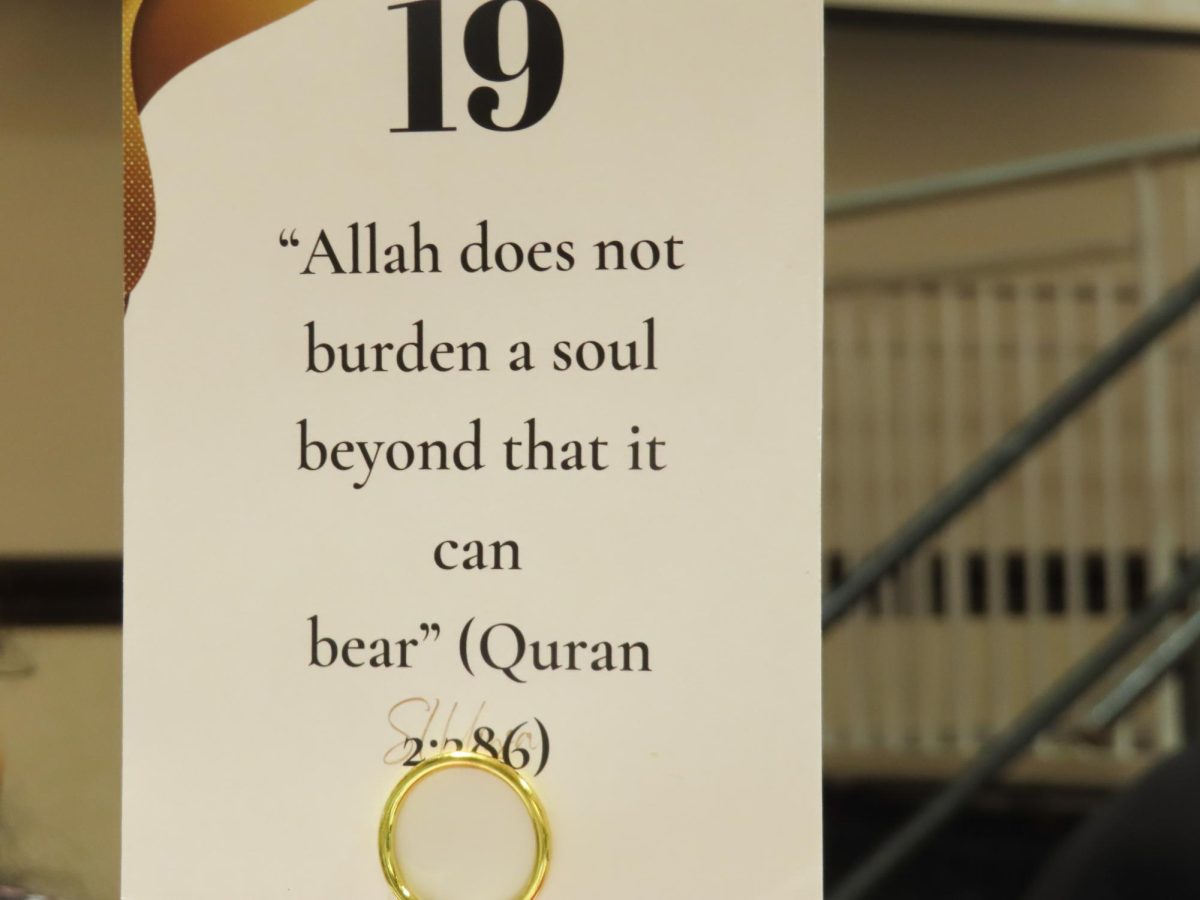
Cousins first started working with the MSA around 12 years ago and speaks highly of “how wonderful, warm and generous our Muslim student community is.” Some MSA E-Board members have shared positive reflections on their experiences at SLU with Cousins.
“I tell people this all the time, in 17 years here, nothing has been as transformative for me as hanging out with Muslim students as much as I have,” Cousins said. “I try every year to check in with the E-Board and just say, ‘How has your experience been at SLU? What’s it like being Muslim at a majority non-Muslim school, especially a Catholic school?’ And the answer is the same every year. That is, they say ‘We love being here, because this is a place where nobody bats an eyelash when we want to talk about spirituality, faith and values.’”
Ramadan’s impact is evident among Muslim and non-Muslim SLU community members, echoing a deep significance and shared values between those observing this month and the university at large.
“Ramadan holds a deeply special place in my life, both as a Muslim and as a professor at SLU,” Benmamoun said. “It is a time of spiritual renewal, self-discipline, and reflection, but it is also a season of profound communal bonding. Fasting cultivates patience, empathy, and gratitude — principles that resonate with all of us at SLU.”











